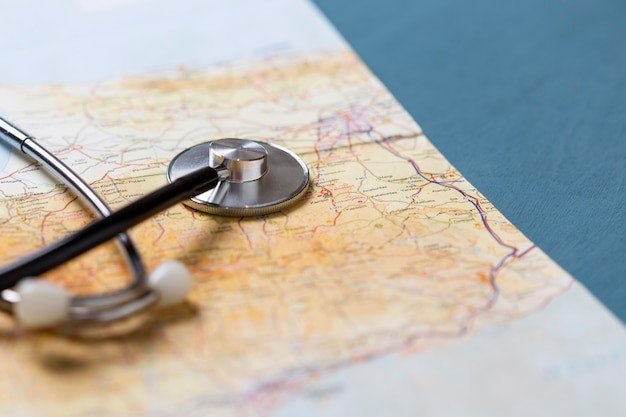If you are planning to study medicine, dentistry, pharmacy, or midwifery in France, you must enter through one of two main academic tracks: PASS (Parcours Accès Spécifique Santé) or LAS (Licence avec Accès Santé). Both tracks fall under a broader framework called IAS (Intégration aux études de Santé), which is the new national structure for entering medical studies in France. This system has replaced the previous PACES system in France. This article will break down LAS vs. PASS, what they are, how they differ, and which might suit your goals best.
Which fields require LAS or PASS?
To apply for the following healthcare programs in France, you must go through LAS or PASS:
- Medicine
- Dentistry
- Pharmacy
- Midwifery
You cannot directly enter these programs. Instead, you must take the entrance exam after completing one of the PASS or LAS academic tracks.
LAS vs. PASS: What is PASS?
PASS is a one-year medical-focused program designed to prepare students for the French competitive health entrance exam. Its curriculum is centered around biology, chemistry, physics, and other medical sciences. Going through PASS, you need to know that it is:
- One attempt only
- Heavily focused on health sciences
- Includes one non-medical minor
When comparing LAS vs. PASS, the latter is often seen as the faster but riskier choice, as there is no option to repeat PASS if you fail the exam. As a PASS student, your education will cover subjects such as:
- Human anatomy and physiology
- Biochemistry and cell biology
- Medical physics
- Biostatistics and mathematics
- Embryology
- Introductory pharmacology
- Medical ethics and social sciences
- Scientific vocabulary and language
- A secondary field, chosen by students, as a complement to their medical studies
LAS vs. PASS: What is LAS?
In the LAS vs. PASS debate, LAS is ideal for students who want an academic backup and a shot at medical school. LAS is a standard bachelor’s degree in a non-medical field, such as biology, psychology, or law, with added health-related modules. LAS is more flexible as:
- You can have multiple exam attempts
- Students earn a full bachelor’s degree
- You can apply to medicine during or after the program
As a LAS student, your coursework depends on your chosen undergraduate program. Here are some examples:
- Biology track: Genetics, physiology, general biology, biochemistry
- Chemistry track: Organic, inorganic, and biochemistry
- Physics track: Mechanics, electromagnetism
- Law track: Medical law and healthcare regulations
- Psychology track: Cognitive science, neuroscience
- In parallel, students must complete medical-related units to be eligible for health school applications.
Understanding IAS
The IAS system includes both PASS and LAS. It replaced the older PACES model and aims to diversify student profiles in healthcare. Therefore, comparing LAS vs. PASS involves examining two alternatives within the overarching IAS framework.
LAS vs. PASS: Key differences
| Feature | LAS | PASS |
| Duration | 3 years | 1 year |
| Focus | Degree of choice + health modules | Medical sciences |
| Exam attempts | Up to 2 (varies by university); In case of failure, you can continue your degree and reapply later | 1; In case of failure, you need to move to LAS |
| Backup plan | Bachelor’s degree earned | None |
| Flexibility | High | Low |
| Exam retake opportunity | If you fail certain LAS courses, you can still proceed to the next year and maintain eligibility to sit the medical exam. | None. PASS is a one-time opportunity. If you are not admitted to medical school, you cannot repeat the year. |
Final words on LAS vs. PASS
The French medical admission system offers two unique paths; choosing the right one is key to your future success. Whether you go with PASS or LAS, make sure your decision aligns with your strengths, long-term goals, and willingness to take risks. PASS offers a direct and faster route into medical school, but it comes with intense competition. For most international students, LAS provides a safer, more versatile route, especially when navigating the complexities of a foreign academic system.


